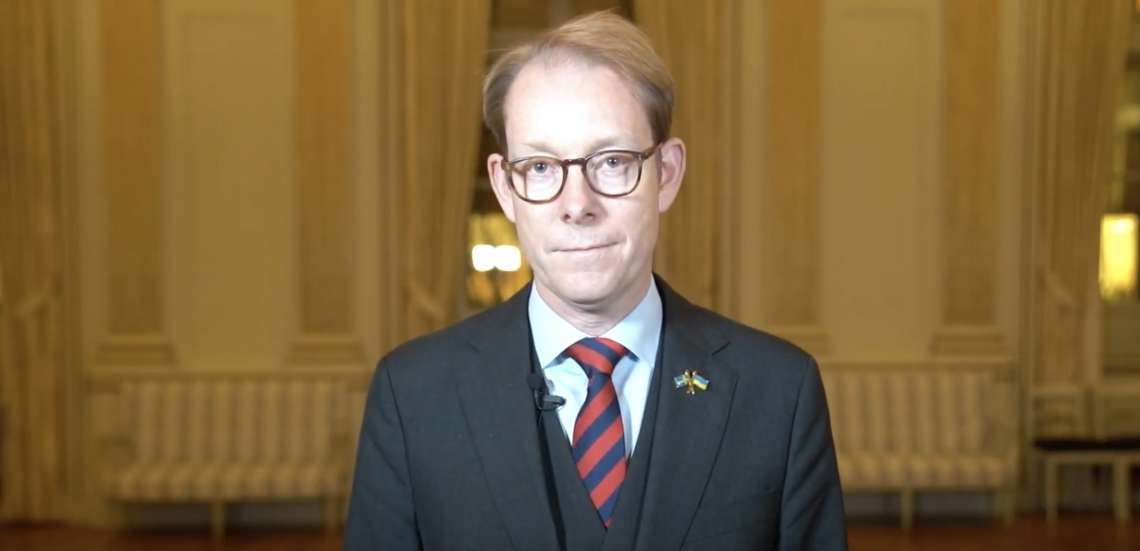In his speech to the United Nations General Assembly, Swedish Foreign Minister Tobias Billström announced that the government would revise the public safety law, granting the police the authority to prohibit Quran burnings in public places.
This move by the Swedish government signals its intention to follow the path of Denmark, which has introduced a law prohibiting the “improper treatment” of all religious objects.
Billström was unequivocal in his condemnation of Quran burnings, alleging that those behind these acts were seeking to sow discord among different communities. This interpretation has been criticized as highly biased, as those who have burned the Quran have often done so as a form of protest against its content and the legitimization of violence and oppression it represents.
In his speech, the Swedish Foreign Minister chose to offer an unreserved apology to Muslims worldwide and in Sweden.
Billström’s approach involves interpreting actions based on the perceptions of the offended party, with little mention of freedom of speech, except towards the end in a general statement.
The previous Freedom of Speech Commission, led by Francis Sejersted, concluded in its report that the offended party should not define the boundaries of freedom of speech.
The Swedish Foreign Minister’s commitment to amending the public order law in the face of the Islamic world is seen by some as a concession.
In recent months, Sweden has witnessed disrespectful burnings of the Quran. These desecrations are being carried out by extremists and provocateurs that seek to sow division between Muslims and non-Muslims.
We must not let these provocateurs succeed.
The Swedish Government is firm in strongly rejecting any act of intolerance. The offensive acts committed by individuals at demonstrations in Sweden do not reflect the opinion of the Swedish Government nor that of the majority of the Swedish people.
Over the years, Sweden has received a great number of Muslims and has strived to integrate the newcomers and their children into our society. Sweden remains in close dialogue with the Muslim world and has invited the Secretary-General of the OIC to visit Sweden.
The rights to freedom of religion, freedom of assembly, freedom of expression and freedom to demonstrate are constitutional rights in Sweden. These freedoms have served our society and our social cohesion well and made us an open and free society.
The Swedish Government has decided to carry out an inquiry to review the Public Order Act, which governs the Swedish Police Authority’s scope to deny a permit application to hold a public gathering.
We must stand together to combat all forms of racism, intolerance and hatred.
Russia
However, when it comes to Russia, the Swedish Foreign Minister took an assertive and direct stance. The majority of his speech revolved around containment, counteraction, and punitive measures against Russia.
In blatant violation of international law, Russia is attempting to deny Ukraine its right to exist as a sovereign nation. If we allow this to happen, Russia will only continue its imperial ambitions. This will not stop with Ukraine. Ukraine’s soldiers are fighting not only for Ukraine’s survival, but also for our security and for the respect for territorial integrity. (…)
Russia must, and will, be held to account.(…)
Accountability, including for the Crime of Aggression, is a condition for justice to the victims and a deterrent against future violations. Sweden supports the establishment of a tribunal for the crime of aggression committed against Ukraine.
Billström underscored that Sweden is now departing from its policy of neutrality, which it has upheld since 1812. In other words, this marks a historic shift, transitioning from a neutral stance to a more confrontational one within just a few months. This change is groundbreaking.
Yet, when dealing with the Organization of Islamic Cooperation (OIC), Sweden appears more accommodating. In this context, Sweden appears to be compromising its long-enjoyed freedoms of the past 200 years. What kind of Sweden is emerging as a result of these shifts?
Sweden’s National Statement at the 78th Session of the United Nations General Assembly

